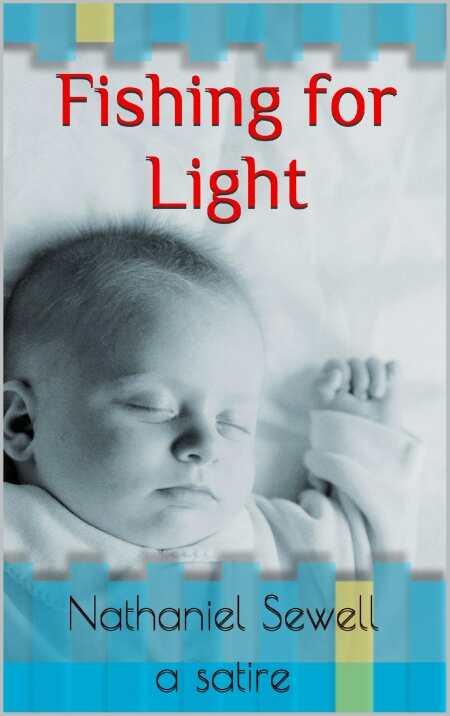
Fishing for Light
A Satire
Science fiction that doesn’t take itself too seriously, Fishing for Light is a wildly creative story.
Take a science fiction story with multiple subplots, add a love element and a bit of satire on twenty-first-century American life (WePay for Ebay, and the like), whip in a battle of good verses evil, and you have Fishing for Light. The use of astronomical events, as well as plausible explanations of space crystals causing DNA mutations, gives the story its grounding and focus.
Professor Quan uses outer-space crystals to manipulate DNA in an effort to make the world a better place and fix the error of his genetically mutated evil daughter Prosperina, who wants to dominate the world. Edward, the story’s protagonist, is selected by Quan to right the world, but Prosperina wants to stop him by getting her hands on the space crystals.
Quan perfects an epigenetic improvement-of-mankind formula that he secretly gives to his targets. One of his early dosing targets, administered by his operative, Captain Lovins, is a very transparent attempt at high-context humor. Bill from Arkansas, who is given a dose of engineered epigenetic material, becomes a Rhodes Scholar and learns to play the saxophone. Yes, he is the future President Clinton.
Edward is born at the exact moment of both a winter solstice and a deep-space supernova. According to Quan, this gives his DNA special leadership qualities. With a dose of epigenetic spray, Edward would become a force for positive change in the world. Edward’s development from a young boy to an office drone with latent world leadership qualities is hinted at throughout the story. These flashbacks are effective, incidents of loyalty and courage that slowly reveal his personality so that it seems natural when Edward helps with a friend’s legal problems. Edward goes to a golf tournament looking for soiled pro items to sell. A successful intermix of subplots takes place on the golf course giving the story more energy.
A series of events causes Edward to change his job and build a relationship with coworker Ardee. Successful shifts in the interwoven subplots are usually made at chapter openings and settings are moved along by inference, such as strewn clothes in Ardee’s bedroom being evidence of the previous night’s passionate love-making. More transitional passages between subplots would help the reader stay on track. When a character is killed off, it’s a great relief because many of the characters are not well defined. Edward is the only character with depth. When characters do reappear many chapters later, it isn’t easy to remember their significance.
Edward’s parents both drink their coffee black, so they wouldn’t be disappointed by the lack of milk or sugar. It was this commonality that brought them together, yet it is repeated too many times in different scenes to be funny. The characters are emotionally narrow; no frowns, smiles, grimaces, or laughter. The usual response is a smirk, including this one from Prosperina: “She smirked, ‘Amazing how easily the human body can be altered, trauma changes you.’” The same description prevails in an exchange between lovers Eddie and Ardee. “‘I hope you like dessert?’ She smirked over at Eddie.”
Overall, the well-written dramatic scenes in this wildly creative story will appeal to science-fiction buffs who have a sense of humor.
Reviewed by
Mark Laiosa
Disclosure: This article is not an endorsement, but a review. The publisher of this book provided free copies of the book and paid a small fee to have their book reviewed by a professional reviewer. Foreword Reviews and Clarion Reviews make no guarantee that the publisher will receive a positive review. Foreword Magazine, Inc. is disclosing this in accordance with the Federal Trade Commission’s 16 CFR, Part 255.
